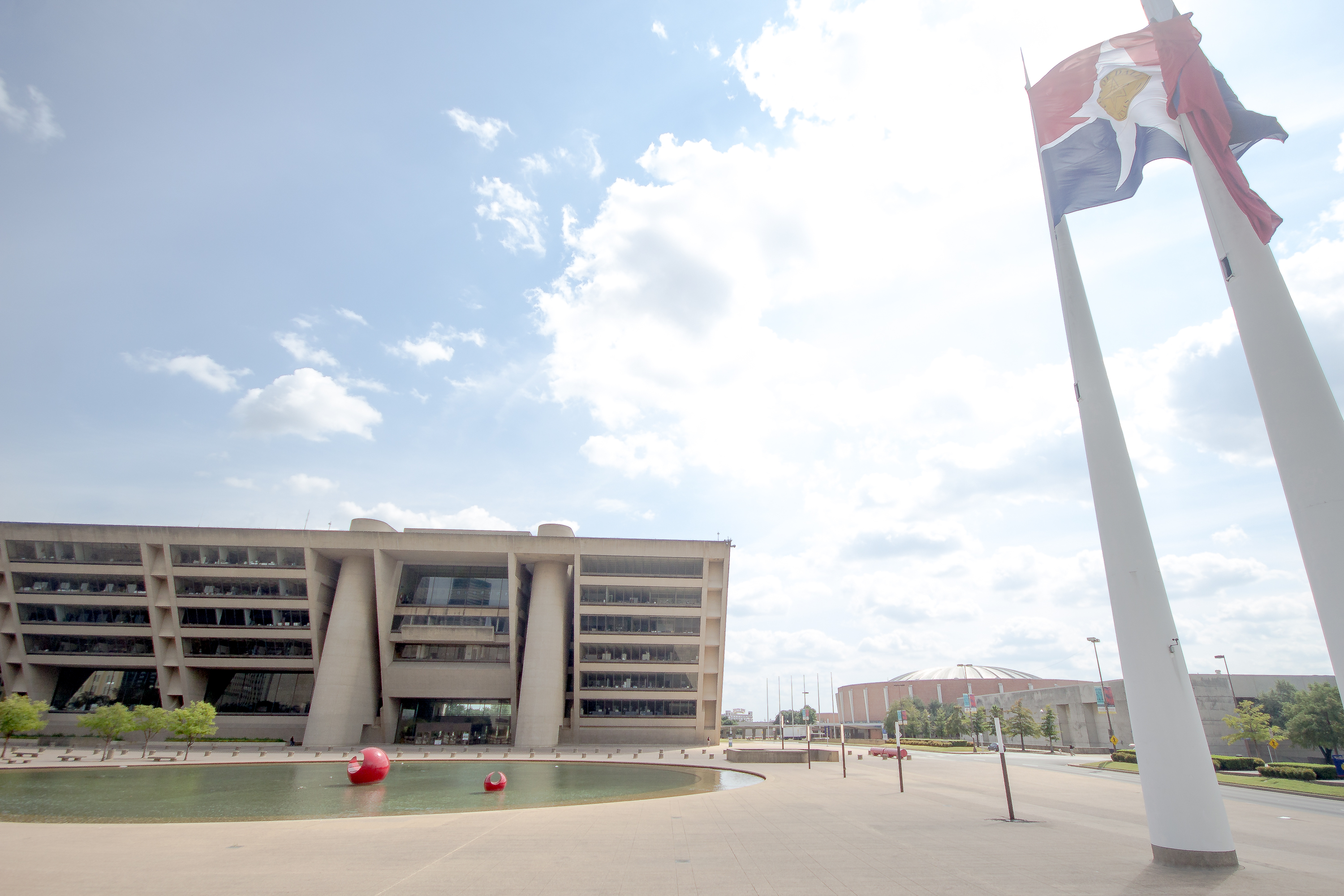City Manager T.C. Broadnax briefed Council this week on how he plans to finally fix Dallas’ broken permitting process, which has been in various stages of disarray for over two years. Residential builders say it’s still taking eight to 10 weeks to get needed approvals. Phil Crone, the president of the Dallas Builders Association, says that every other city in North Texas processes those same permits in two to three weeks.
Commercial developers are harder to pin down because of the variety of their projects, but Linda McMahon, the head of the The Real Estate Council, says she receives “a daily barrage of emails” from brokers and smaller developers who can’t figure out why their permits aren’t moving quicker.
Broadnax’s presentation on Wednesday was supposed to bring clarity on what is to come. And he did present a plan. But that solution contained no metrics by which to gauge success. It is still not clear what the city believes is an appropriate amount of time for processing commercial and residential permits so builders can get to work.
Broadnax also argued that the issue had been overblown by the media and the development community. He says people now approach him at parties to ask when the permitting problem is going to be fixed—something that used to be an in-house complaint among the developer community has now gone public. “That’s not a good party feeling,” he said.
The city manager estimated that processing times would be back to normal—“the good old bad days,” as he called it, which came accompanied with no numbers or timeline to define what those “gold old bad days” really entailed—early next year. In the conversations I’ve had with builders, consultants, and council members, they took his attitude like this: little to see here, we’re on top of it, and why are we even talking about this?
Why are we talking about this? Here is an anecdote from one homeowner I spoke to.
Jon Eilertsen is a CPA who lives with his wife and two kids in a one-story home just north of Lovers Lane, near Bluffview Boulevard. They bought the house in January 2020, knowing they’d eventually like to add a second story. His parents are getting older. They wanted a playroom for the kids. The ability to add on was part of why they bought the place. They gutted the house and redesigned the interior before the pandemic; it took just 10 days to get a permit back then, he says.
On April 6 of this year, Eilertsen’s contractor filed documents with the city to receive a permit to start working on that second story. More than six weeks have elapsed since the city received those documents, but Eilertsen says his permit is still in “pre-screen,” which is a stage where staffers make sure all the documents have been submitted before moving the package on for final review.
Eilertsen’s contractor missed one thing: a letter stating that the architect had ensured the foundation could sustain a second story. ProjectDox, the city’s permit-processing software, flagged the missing document on April 24. The contractor uploaded it two days later—and then Eilertsen’s permit request went to the back of the line, where it has stayed for about a month. As of Thursday, there were 141 applications ahead of his.
He emailed the city’s Development Services Department on May 17. Here’s the response he received: “Your consultant uploaded the required document on 4/26, please note that any time you have a task sent back to you, even if you send the task back the same day, your permit automatically goes to the end of the prescreen list. This causes delay in your permit whether its [sic] in prescreen or review stage.”
“We planned to do this in the spring, once holidays are over and our kids are out of school. There’s less disruption,” Eilertsen told me. “With all these delays, we’re talking about this project going into September, October, November, December—now the family has the potential to be displaced during school.”
The permitting problem began shortly after the pandemic, when staffers at the Oak Cliff Municipal Center—where permits are processed—were sent home with old computers and little to no training on the software that would be processing these documents while the city worked from home. It was a disaster. The backlog exploded to almost 1,000 permits.
Today, the numbers are much better. Staff told Council on Wednesday that it takes an average of four months to receive a commercial building permit and about 35 days for residential. Builders and architects tell different stories: homes taking seven months to build, businesses stuck in limbo waiting for permits. The city argues that its wait times are inflated, that other cities don’t count the “pre-screen” portion like Dallas does. Staff also said that Dallas counts every day, not just business days. But the reality on the ground doesn’t jibe with that narrative, developers argue.
Broadnax argued that we should focus on the big picture. He told of how a plan commissioner informed him that the latest City Plan Commission docket included over $1 billion worth of projects. The city approves 6,500 permits a year, said Assistant City Manager Majed Al Ghafry. “We live in a world of 6,500 permits that others can only hope to achieve,” he said.
Al Ghafry and Broadnax highlighted the difficult work being done in the permitting office. “People working in the development services space understand the seriousness of this issue and their jobs and what it means for our tax base,” Broadnax said. Even critics praise staff. This problem is a deeper one.
Dallas has only 29 full-time staffers reviewing plans, according to the briefing appendix. Austin has 38, Houston has 60, and San Antonio has 77. Councilwoman Paula Blackmon asked how much money was available in the city’s enterprise fund, which can be used to staff up. There’s $42 million there. The city also has on retainer a few third-party consulting firms that can help process permits. Al Ghafry cited the difficulty in competing with private industry for skilled workers, who can make much more money outside City Hall. Public servants are motivated by a different calling, he argued. He said the city has launched a compensation study to ensure that it is at least paying its employees more than our neighboring municipalities.
Other improvements: Dallas finally hired a new chief building official; that role had been vacant since March 2020. The software, ProjectDox, is being updated and staff are being trained. The call center is being reorganized. A pilot project will soon launch that will allow architects and other trades to self-certify their work, putting their license on the line and bypassing the city.
Councilman Tennell Atkins, chair of the city’s Economic Development Committee, asked a simple question: “Can someone tell us a timeline? When can someone say we’re gonna fix the permitting?”
“We’re looking at a nine-month period in which things will be great or in perfect order,” Al Ghafry said.
Phil Crone, the president of the Dallas Builders Association, said the development community has a simple ask: “When are we going to make this right? … The most important metric and the only one that matters for the hundreds and hundreds of people out there trying to build homes or remodel or start new businesses is just how long is it gonna take me?”
The briefing was not Broadnax’s idea. In February, Mayor Eric Johnson created the Working Group on Permitting. He appointed Councilwoman Blackmon and the planning consultant Macey Davis—who has now tried to help fix the permitting office under three different city managers—as co-chairs.
On April 22, Blackmon sent a memo to Broadnax requesting that he brief the Council on a solution to get permits moving. Davis tells me that this was something of a last-ditch effort to get Broadnax to respond to them. She says the group requested multiple meetings with Broadnax and the top of the City Hall org chart but those didn’t happen until early May, after Atkins asked Broadnax to give an update to his economic development committee.
The working group’s contact with the city was Will Mundinger, the former Goldman Sachs executive who was tapped to help the city navigate fixing the issue. Davis was part of a team in 2015 that created a plan to overhaul the permitting process; many of the ideas from the recent briefing echo what that 2015 plan suggested.
“I was a bit surprised by the approach of the city manager in saying that it’s an exacerbated problem by the private sector and the media and the Council and our rhetoric is causing more problems than actually exist,” Davis said. “I just shake my head. I don’t understand why he thinks that. For millions of dollars to be left on the table during a boom economy does not make sense to me.
“The story is completely real and it’s urgent and it’s scary.”
Davis said she felt compelling a briefing was the only way to hear directly from Broadnax. “We wanted measurable goals. Performance metrics. Not just a plan, but tell us what the North Star is? What are we pointing to?” she said. “Once we do these things, what do you hope will come out of it, and can we measure ourselves against that?”
The briefing sunk the spirits of the stakeholders who have tried for years to get the city to take the issue seriously in public. They all seem to believe in the plan itself but are frustrated that there are no metrics by which its success can be measured. A plan without specific goals fuels frustration, they argue.
“If you have a plan in place and it has measurable goals in it, you will stop the rhetoric,” Davis said. “In the absence of a plan, people make up their own narrative and that’s what’s happening.”
There are structural problems with the city’s zoning that make permitting difficult. There are over 1,000 planned development districts, zoning carve-outs that give developers the ability to do different things beyond whatever the area was originally zoned for. The permitting office has to sift through those variations when approving building permits. That isn’t easy.
But the briefing signaled a major split: the development community, the council members who have been working on this, and other stakeholders believe Broadnax aimed his ire in the wrong direction. They argue that this problem isn’t overblown, that it’s affecting large-scale developers and individual homeowners like Eilertsen. They felt that calling this a PR problem minimized the very real challenges facing people trying to build in Dallas.
Mayor Eric Johnson spoke to this as he closed the meeting. “This is one of those times I feel like maybe we’re erring on the side of giving As for effort rather than holding ourselves accountable for the efficiency with which we deliver this service,” the mayor said. “I just don’t want anyone to take from today that it is a shared view around here that our permitting issues are a PR issue and don’t reflect the reality of what’s going on here. I want us to take responsibility and be the very best we can be.”
McMahon was more succinct: “After Wednesday’s briefing, we’ve had it.”
Get the D Brief Newsletter
Author




